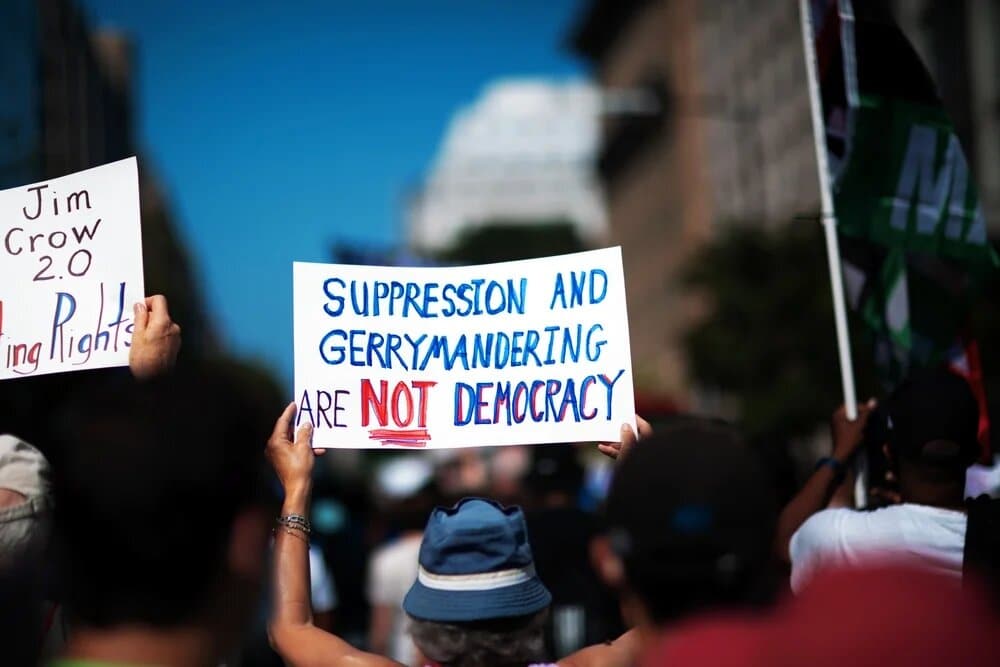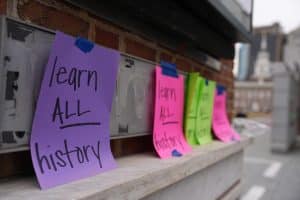Leading an organization with a primary focus of expanding democracy by expanding the electorate – through voter registration, civic engagement, and education – we frequently hear:
“I’m not interested in voting. My vote doesn’t matter. Nothing changes. The two parties are the same.”
The two major political parties in Pennsylvania are not the same.
When it comes to advocating for our freedom to vote, legislating for enhanced accessibility to the ballot, and more convenient voting options for the electorate, it’s not even close.
On March 19, Pennsylvania’s first woman Speaker of the House Joanna McClinton (D) introduced a memo to garner support from her colleagues that would bring needed enhancements to our voting experience, including; same day voting and in-person early voting. Afterall, the birthplace of American democracy should allow its citizens similar opportunities as Georgia and North Carolina have afforded their electorate. According to a nonpartisan study published in the Election Law Journal, Pennsylvania ranks 32nd for ease of voting. Even Arkansas and Louisiana provide its voters with greater access to casting a ballot.
Following Speaker McClinton’s announcement, not a week went by before Republican minority House Leader Bryan Cutler lifted up HB 891, and announced a procedural maneuver aimed to bring more restrictive voter ID requirements to Pennsylvania. This move would potentially force a constitutional amendment on our November ballots, permanently changing the state Constitution, and circumvent legislators having to work for bipartisan support in order to legislate in a bipartisan manner.
Pennsylvania already has voter ID laws on the books. They are effective. Pennsylvania is having free and fair elections.
To be clear: more enhanced and restrictive voter ID laws would negatively impact the freedom to vote for the communities our organization centers, including; the youth, immigrants and communities of color. Republicans know this. It’s their strategy to win hotly contested elections, especially during presidential election years.
Pennsylvania Republicans attempted to bring stricter voter IDs laws to Pennsylvania in 2012. During that presidential year, then Speaker of the House Mike Turzai (R) touted stricter voter ID would give Republican presidential candidate Mitt Romney the win.
Voterphobia is real when you can’t win on ideas and thus must suppress the votes of historically disenfranchised communities who have differing political values in order to win elections and maintain or regain power. The courts ruled their 2012 attempt to institute more restrictive voter ID laws should not stand. Lead litigant in that case, the late Ms. Viviette Applewhite of Philadelphia who voted in every election since FDR, would have been denied her freedom to vote because of more restrictive voter ID laws.
Voting rights and our access to the ballot are under attack. Election denier, House minority leader Cutler isn’t alone in his attempt to disenfranchise voters:
– PA’s state Freedom Caucus chair and election denier state representative Dawn Keefer (R), sued President Biden in a frivolous attempt to challenge automatic voter registration in the Commonwealth. Her case was dismissed by the U.S. District Court for the Middle District on March 26.
– On March 27 the 3rd Circuit Court of Appeals ruled that vote by mail ballots must be dated in order to be counted. The appeal was brought by the RNC and submitted by 17 Republican-led states. It’s estimated that this ruling will disenfranchise tens of thousands of Pennsylvania voters this Fall. As thousands of Pennsylvania voters made this common mistake of incorrectly dating or not dating their ballots at all. A judge nominated by the Obama administration provided the dissent in the 2-1 decision.
– Earlier in March, election denier, Chair of the state government committee, state senator Cris Dush (R) introduced his own memo to potentially disenfranchise more voters; including those he signifies having mental competency issues.
Voting in the Commonwealth should be more convenient for our increasingly busy lifestyles. More Pennsylvanians would turnout to vote and make their voices heard if we had more opportunities and options to cast our ballots. In addition to voting in the primary election, on or before April 23, please take the next step and contact your state legislators. Tell them to make our elections more accessible for all eligible voters in Pennsylvania. Defending democracy and access to our sacred ballots depends on it.







